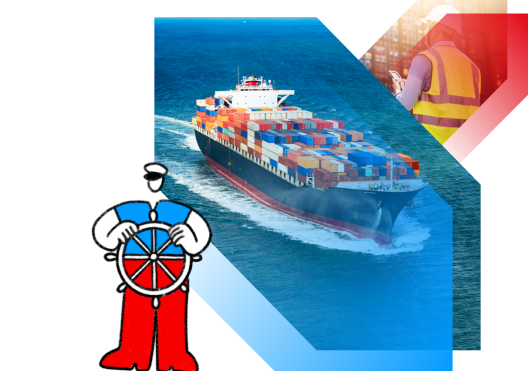Despite being landlocked, for decades Luxembourg has been developing its maritime sector, making the country an ideal location for the registration of ships and shipping companies.
Ever since the sector was created in 1990 with the Maritime Act, Luxembourg’s reputation as an attractive location for registering ships and shipping companies has grown significantly. Today it offers a wide range of services for shipping companies, operators, and other industry players. The sector and its regulatory body adheres to applicable laws, regulations, and standards while at the same time showing great sensitivity toward the industry, which is why a great number of companies have chosen to base their operations in the Grand Duchy. The sector comprises around 300 companies active in transport, dredging, and logistics, and plenty others provide ancillary services like financing, legal services, and insurance. In 2008, an official Maritime Cluster was established, and it currently has around 60 members.
The sector is overseen by the Luxembourg Maritime Administration (Commissariat aux affaires maritimes), which is part of the Ministry of the Economy. This administration is in charge of the registration application process, and it ensures the application of Luxembourg law, EU directives, and international conventions. Because of its adherence to rules and its clear and transparent system, Luxembourg appears on many so-called ‘white lists’ including the International Maritime Organization's list of nations that respect the International Convention on Standards of Training, Certification and Watchkeeping for Seafarers (STCW- 95).
Young and dynamic
The growth of Luxembourg’s maritime sector can be traced back to 1990, when as part of a move to diversify the economy, lawmakers passed the Maritime Act which created a public maritime registry and gave birth to an ideal jurisdiction for maritime business while fostering tangential business activities. Another important development took place in 2006, when the Minister of the Economy and Foreign Trade signed an agreement with representatives of the Luxembourg shipping sector. The aim was to increase safety, protect the environment, ensure good working and living conditions for crewmembers, develop Luxembourg as a shipping jurisdiction of choice, and make the Luxembourg Maritime Registry accessible and efficient. The result is that Luxembourg maintains an excellent reputation in this ever-changing sector, much thanks to the administration and relevant government offices that take an industry-friendly approach by being helpful, prompt, and flexible.
An attractive place for shipping
One of the reasons that shipping companies are attracted to Luxembourg is for its business-friendly climate. This includes the country’s attractive system of taxation, the availability of financing, and Luxembourg’s clear and fair registration process.
Luxembourg shipping companies fall under the general tax regime applied to all companies, but a variety of applications ensure optimisation for maritime companies. These include exemption from municipal business taxes, accelerated depreciation, the provision of large-scale repairs and maintenance as deductible expenses, the allowance of carried-forward losses, and tax credit for investments, among others. And unlike some countries, Luxembourg has no ‘tonnage tax’ scheme.
Shipping is an investment-heavy industry, and obtaining financing for companies is not always easy. As a top European finance hub, Luxembourg provides a wide array of instruments and financing options including investment funds, banks, and other institutions. Some of the specialised tools available are ship mortgage bonds and specialised investment funds. Another possibility is a relatively new entity, the Special Limited Partnership (SCSp), which can serve as an additional investment vehicle for maritime activities.
In order to register a ship in Luxembourg, the vessel has to be owned 50 percent or more by an EU citizen or by a company with a registered office in an EU member state, and all or part of the ship management must be conducted in Luxembourg. The company must have a shipping manager who is authorised by the Ministry of the Economy and Foreign Trade and he or she must reside in Luxembourg and show evidence of professional integrity and experience. To qualify for a Luxembourg Maritime Flag, ships need to weigh more than 25 tonnes and be less than 15 years old, and they must be used for commercial purposes.
Stay informed! Sign up to receive our latest updates.
© 2024 Business Events Luxembourg. Designed by Cropmark & Developed by Simpleview
Planning your event in the Grand Duchy? We'd love to help.




